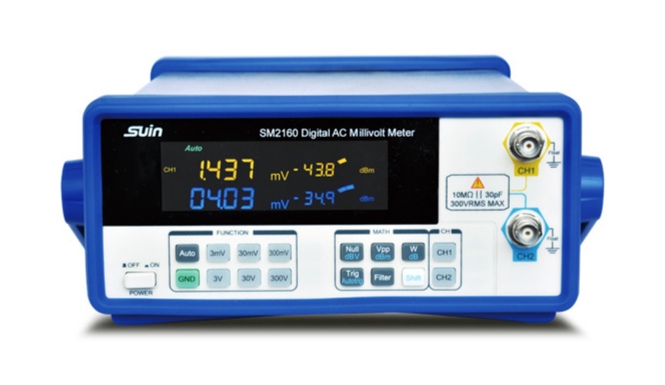

Millivolt meter is a common electronic test instrument, then what signals does it test usually? Let's have a look below:
AC Millivolt meter is designed for accurately testing AC voltage, especially the small signals’ AC voltage, from XmV to XXmV. So when testing small signals, it is usually millivolt meters used, while not the oscilloscope which has bigger errors.
Another point is AC Millivolt meter can be only used to test Sine AC signals Vrms, if the tested signal is non-Sine signal, the measured values should be converted.
Below is Suin AC Millivolt meters, should you have interest in it, pls kindly contact us.
Features:
3 1/2 or 4 1/2 digits display
LED display, dual independent channels
Auto/manual ranging be selected
Multiple display result with different units
High frequency range from 5Hz to 6MHz
Standard interface USB Device

Suin SM2160 AC Millivolt Meter
Jul. 10, 2025
Common Uses and Types of Signal GeneratorsJun. 13, 2025
Power Quality Analyzers: SA2100, SA2200, and SA2300 – Which One Fits Your Workflow?May. 14, 2025
Stopwatch Calibrator Uses in Aerospace, Automotive and Labs